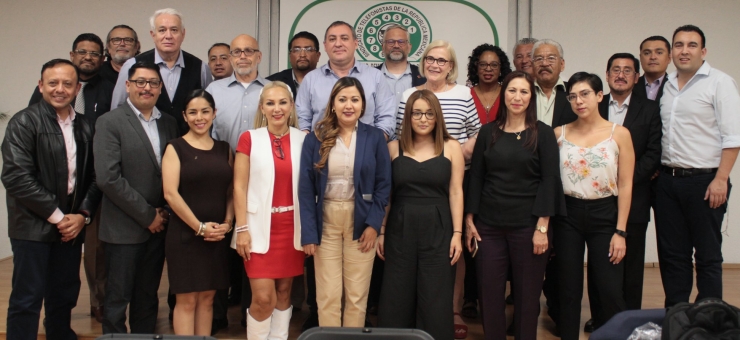News
Mexico: Rising expectations and hopeful signs of change

Mexico is going through an exciting period of transformation which holds hope for many that independent and democratic unions will have the opportunity to organise and grow, ushering in a new era of stronger collective bargaining and improved conditions.
The new government of Andrés Manuel López Obrador recently approved an overhaul of the labour law which is intended to provide a new path forward for employee representation and bring an end to the dominance of “protection contracts” .
Protection contracts are an attempt to avoid real collective bargaining through the creation of fake collective agreements which block legitimate unions from organising the workers. An estimated 90% of all employment contracts in Mexico are protection contracts. These corrupt “agreements” have benefited only a handful of people for many years, and have damaged the credibility of all unions.
Within this context, and in the framework of the negotiations of a trade agreement to replace NAFTA, the General Secretary of UNI, Christy Hoffman, the Regional Secretary of UNI Americas, Marcio Monzane, together with representatives of the US trade unions RWDSU, SEIU and CWA, visited Mexico. They met with affiliates, politicians and leaders in civil society, to understand first-hand the changes that are taking place in the labour sphere and how they can contribute from an international perspective.
The Government expressed that the previous Mexican industrial relations system was not effective or transparent. The aim of the Labour Reform is to open the door to legitimate collective bargaining and democratic unions. Many workers are unaware that their conditions are governed by fake collective agreements, and will now have the opportunity to vote on whether they want the agreements to continue, through a transparent secret ballot vote. The government also wants to ensure that all workers have an opportunity to vote on union leadership.
There is no doubt that the Government is likely to face difficulties as it moves forward to implement these changes, because the new law requires a big shift in the enforcement structure of labor rights as well as practices which have been in place for decades. Most government officials recognized that the challenges ahead include the fact that extensive resources will be required to implement the law (for example, the cost of reviewing every collective agreement over the next four years), and that the law foresees a relatively slow pace of change. Since the transformation will not happen overnight, it is important to anticipate resistance from those who benefit from the status quo.
Christy Hoffman, General Secretary of UNI Global Union, said, "This is an exciting moment for workers and unions in Mexico, and we congratulate the government for enacting this massive reform. It is ambitious and transformative. The high expectations put the pressure on everyone to make sure that we not only end the protection contracts, but that these are replaced with democratic unions and collective bargaining. UNI and UNI Americas will be there to support our affiliates in this period of great opportunity."
Marcio Monzane, Regional Secretary of UNI Americas, added, "We are leaving with the commitment that we are going to be a voice outside of Mexico saying that things are going well, but also reporting when things are not."
"We are very excited about these changes and we believe that they need to be implemented. We will accompany our affiliates and the trade union movement to exercise their rights and their ability to negotiate," he concluded.

